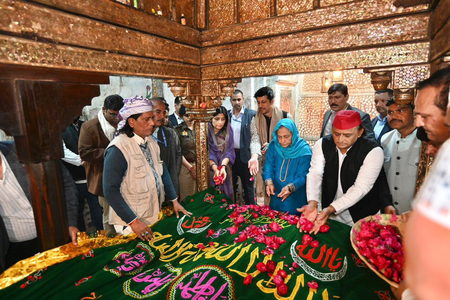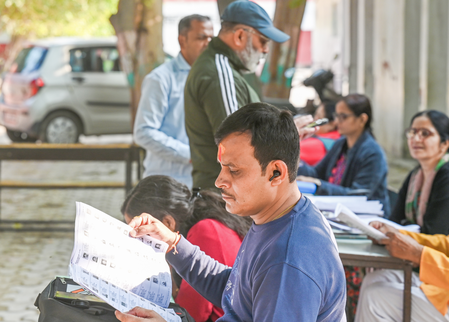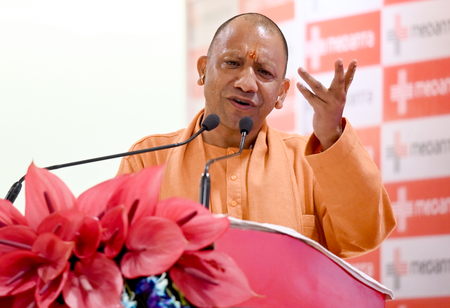
New Delhi, July 28 (IANS) The Supreme Court on Monday questioned how Justice Yashwant Varma – who is facing an impeachment threat following the cash-discovery episode – could challenge the findings of the three-member in-house enquiry committee after having participated in the process.
“Why did you wait for the enquiry to be completed and the report to be released? Why did you not challenge when the committee was appointed? Why did you wait? In the past, judges have abstained from attending these proceedings. You could have approached us earlier as well,” a bench of Justices Dipankar Datta and AG Masih asked senior advocate Kapil Sibal, representing Justice Varma, a sitting judge of the Allahabad High Court.
The apex court was dealing with a writ petition filed by Justice Varma to quash the communication forwarded by then Chief Justice of India (CJI) Sanjiv Khanna to the President and Prime Minister, recommending action based on the in-house committee’s findings.
Sibal argued that the CJI has no authority to write to the President recommending the initiation of impeachment proceedings, as such a motion must be initiated by the Members of Parliament (MPs).
“Only if Lok Sabha or Rajya Sabha members are satisfied that the conduct is such that it requires his removal, they will move a motion.”
The senior counsel questioned how the alleged discovery of cash in the outhouse of a judge’s residence would constitute misbehaviour warranting his removal.
Sibal added that the Centre can neither initiate nor recommend impeachment proceedings, and that Parliament was left with no option when the CJI recommended the removal of Justice Varma.
To this, the Justice Datta-led Bench said that the findings of the in-house committee are not considered evidence, and under the Judges Enquiry Act, the motion of removal must be preceded by an inquiry conducted by a three-judge committee.
It added that sending the in-house committee report to the President and the Council of Ministers did not imply that the CJI was attempting to influence Parliament.
The apex court will continue to hear the matter on Wednesday.
Then Delhi High Court judge, Justice Varma, came under scrutiny following the March 14 discovery of burnt cash in an outhouse of his official residence in the national capital after the fire brigade had gone there to douse a blaze.
Following the cash discovery, which sent shockwaves through judicial circles, Justice Varma was repatriated to the Allahabad High Court, and an in-house enquiry was initiated into the allegations.
The in-house enquiry committee found both direct and electronic evidence indicating that the storeroom was under the covert or active control of Justice Varma and his family. It concluded, based on strong inferential evidence, that the burnt cash was removed from the storeroom in the early hours of March 15.
The three-member enquiry committee – comprising Chief Justice Sheel Nagu of the Punjab and Haryana High Court, CJ G.S. Sandhawalia of the Himachal Pradesh HC and Karnataka HC’s Justice Anu Sivaraman — found the allegations serious enough to merit impeachment proceedings against Justice Varma. The committee held that Justice Varma’s misconduct was proven and grave, meriting his removal under Article 124(4) of the Constitution.
The apex court is also dealing with a petition filed by advocate Mathews J. Nedumpara, along with other co-petitioners, seeking a direction to the Delhi Police to register an FIR in relation to the incident of alleged discovery of the burnt cash in an outhouse of Justice Varma’s official residence while serving in the Delhi High Court.
Advocate Nedumpara, for the third time in a row, reiterated that the Union government — being in charge of the Delhi Police — was duty-bound to ensure registration of an FIR. Earlier, the Supreme Court had declined to entertain similar pleas by Nedumpara — first in March, seeking an FIR and investigation into the cash-discovery allegations, and again in May, seeking Justice Varma’s criminal prosecution.
–IANS
pds/vd




